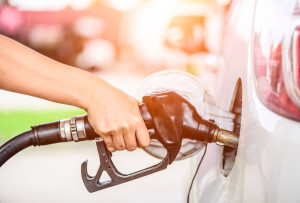by Nathan Michael - Posted 3 years ago

With gas prices at record highs, we’re all experiencing sticker shock at the pump. It even costs about $60 to fill up a compact car with a 12-gallon tank. Condolences to the wallets of people who drive trucks and SUVs or who live in California, where a gallon of gas costs an average of $6.43 as of June 2022.
Interestingly enough, fuel economy is actually often better in the hotter weather because it takes less time for vehicles’ engines to warm up to efficient temperatures. In addition, according to a U.S. Department of Energy article, summer grades of gasoline can contain more energy and vehicles experience less aerodynamic drag in warm air than in cold air.
That said, drivers can do a few things to help ease the financial strain this summer. Consider trying these gas mileage tips for hot weather from the U.S. Department of Energy’s fueleconomy.gov website:
— Air conditioning is the biggest deterrent to fuel economy in the summertime, and even rolling windows down can reduce your vehicle’s gas mileage. In hot conditions, the AC can decrease the usual fuel economy by more than 25%, which is $1.25 plus per gallon based on the national average hovering around $5 per gallon in June 2022.
Shorter trips can be the costliest. It’s recommended to roll the windows down to cool down passengers at lower speeds and to turn on the AC when you hit highway speeds and the open windows cause drag.
— Setting the AC at lower temperatures uses more fuel, so keep that in mind.
— Try parking in the shade and using a sunshade in your windows to keep the cabin’s heat lower.
— Getting rid of the cabin’s heat by driving with windows open before turning on the AC reduces the strain on the unit and can increase the time it takes to cool your vehicle’s interior.
— Don’t idle with the AC on before you drive.
— Follow instructions in your vehicle’s owner’s manual for best practices and results.
By the way, hybrid and electric vehicles aren’t immune to higher costs from air conditioning during the summertime. In fact, the AC can actually affect hybrids and EVs even more than normal vehicles, according to the Department of Energy.
It can help to pre-cool the vehicle’s cabin while it is plugged into the charger. There will be better value by keeping the AC set at a warmer temperature setting because it won’t drain the battery as quickly.